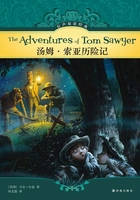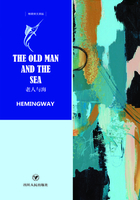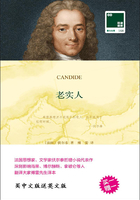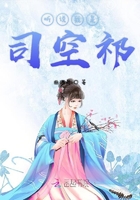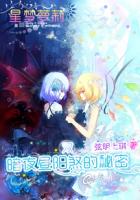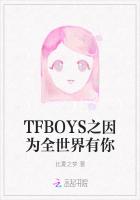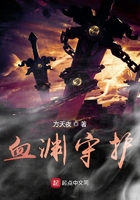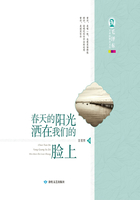First Impressions
When a traveller arrives in Shanghai today he is struck by the factthat to all intents and purposes he might be in a large European city.
The tall buildings, the well paved streets, the large hotels andclubs, the parks and bridges, the stream of automobiles, the tramsand buses, the numerous foreign shops, and, at night, the brilliantelectric lighting,—all are things he is accustomed to in the homeland.
Of course there is much that is different; the crowds of Chinese in thestreets. the imposing Sikh policemen, the ricshas and the wheelbarrows,and the Chinese shops with their ornate gilding and picturesquesignboards. Shanghai is a very cosmopolitan place, a meeting-groundfor people from all countries, a great and a unique city, one of the mostremarkable in the world.
When the stranger is told that the land now occupied by theInternational Settlement and the French Concession was originallya low mud bank with scattered Chinese hamlets, he is surprised andastonished at the marvellous growth that has taken place between 1843
and 1927, a period of about eighty-five years.
The Old Native City
Before the advent of the foreigner to the shores of China, the oldcity of Shanghai had existed for many years. It is situated in latitude31°41"15“ North, longitude 121°29" East, in the province of Kiangsu,on the left, or west, bank of the Whangpoo, about twelve milesfrom the point where that river empties itself into the estuary of theYangtze. Into the Whangpoo, a short distance to the north, flows theSoochow Creek, a waterway connecting Shanghai with the cities of thehinterland.
It was built on delta land formed in ancient days by the silt fromthe Yangtze River.
Just when the city was first founded it is impossible to say, butit is mentioned in history 2,150 years ago. Judging from its old name“Hu,” it probably first came into importance as a fishing town. Owingto its excellent anchorage, it was destined to become a commercialport, and in A.D. 1280 it was re-named Shanghai, meaning “above thesea,“ or ”Upper Sea.“ From the fact that there is another place somedistance below the present city, called “Hsia Hai” or “Lower Sea,” itis supposed that originally there may have been two arms of the sea,extending inland, one known as the “Lower Sea,” and the other as the“Upper Sea,” and that Shanghai derived its name through being builton the “Upper Sea.”
On account of the depredations of Japanese pirates, permissionwas obtained to enclose it with a wall in A.D. 1554 。 This wall wasremoved after the Revolution of 1911, and the moat which originallysurrounded it was filled up, making it difficult for the stranger to tellnow where the old native city begins.
Some interesting information in regard old Shanghai may be found in “SomeNotes on the History and Folk Lore of Old Shanghai“ by Rev. A. P. Parker, d.d.,Journal of the North-China Branch of Royal Asiatic Society, Vol. XLVII (1916), pp.
87-88.
Shanghai from the historical point of view is insigni-ficantcompared with other large Chinese cities.
One of the most famous local sites is the temple Ching AnSsu, close by the Bubbling Well, about three miles from The Bundof the modern Settlement. This well is known as the sixth spring ofimportance in the country. Its “bubbling,” which appears mysteriousto visitors, is caused by the formation of marsh and carbonic acid gas.
Near the temple is held every year in the spring what is known as theBamboo Fair. It comes at the time of the birthday of Buddha. Articlesmade of bamboo and other commodities are on sale for several daysand vast crowds of purchasers and sightseers gather in the same way asat a country fair.
Another notable site is that of the Lunghua, or “Dragon Flower,”
Pagoda, which dates from the later Han Dynasty, A.D. 221, or,according to another account, from the Tang Dynasty, A.D. 800.
One other historic place, Siccawei, might be mentioned, althoughit belongs to a much later period. The correct spelling of the namein the Shanghai dialect would be Zi-ka-wei, and from this Siccaweihas been derived. The Chinese characters mean, “the residence of thefamily Zi.“ Here was born in 156 2. Hsü Kwang-ch"i, or as he wasafterwards called Paul Hsü (Hsü is the mandarin pro-nunciation ofZi)。 He was one of the firs of the high Chinese offcials to enter theChristian Church, being pupil, convert, and friend of the great Jesuitmissionary Matteo Ricci. He was a great scholar and the author ofseveral important works, among them being a tract written in 1616 indefence of the Christian Religion. His family property was afterwardsacquired by the Jesuits and became the site of the large work nowcarried on at Siccawei. His grave may be seen at Siccawei at the southwestcorner of the Church Of St. Ignatius.
Shanghai passed through many vicissitudes. Between thefourteenth and eighteenth centuries there were more than forty periodsof public distress, some of them due to floods, probably caused bytyphoons, and others to the incursions of the Japanese pirates, who formany years harried the coasts of China.
First Attempts to Open up commerce with ChinaOwing to the difficulties under which trade was carried on in thefactoriesl or trading posts at Canton, several attempts were made byBritish merchants to open up new points of access.
In 183 2 the East India company despatched the ship “LordAmherst“ from Macao on a commercial mission in charge of Mr.
Hugh Hamilton Lindsay with the Rev. Charles Gutzlaff as interpreter.
Wherever he called along the coast, Mr. Lindsay met a series of rebuffs.
After failing to gain admittance into Amoy, Foochow, and Ningpo, heproceeded to Shanghai. The officials of that port had been notified ofhis coming and were prepared to oppose his entrance into the harbour.
He managed, how-ever, to obtain an interview with the Taotai, theofficial in charge of trade, in the temple of the Queen of Heaven.

